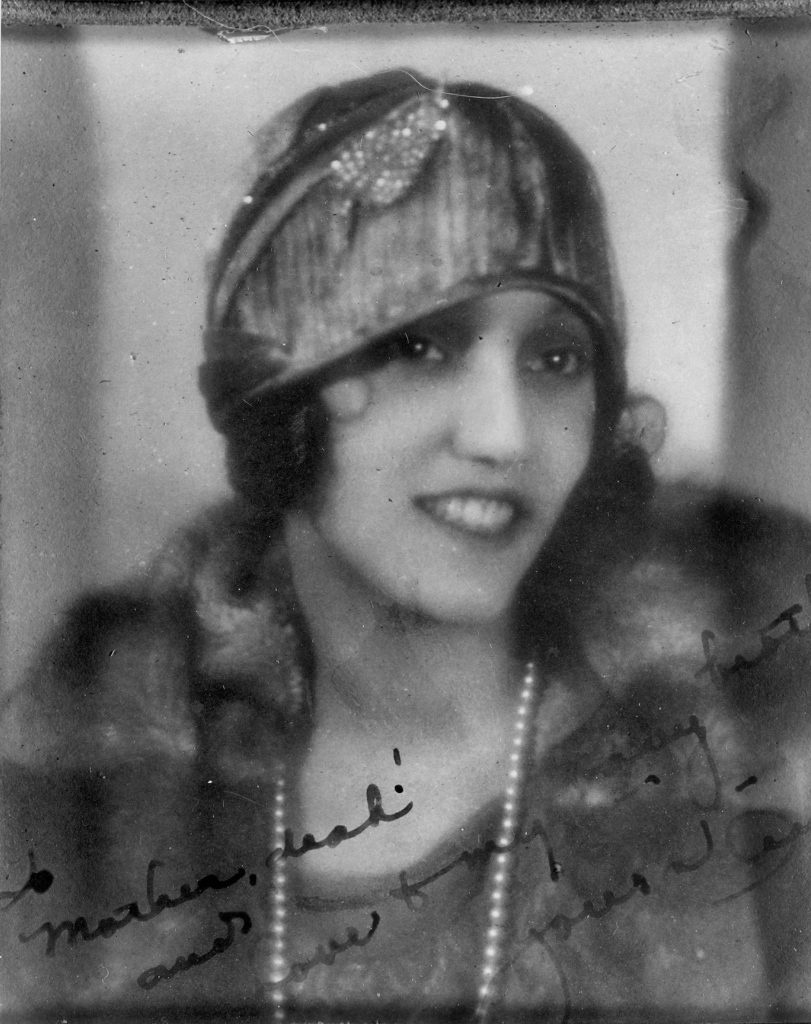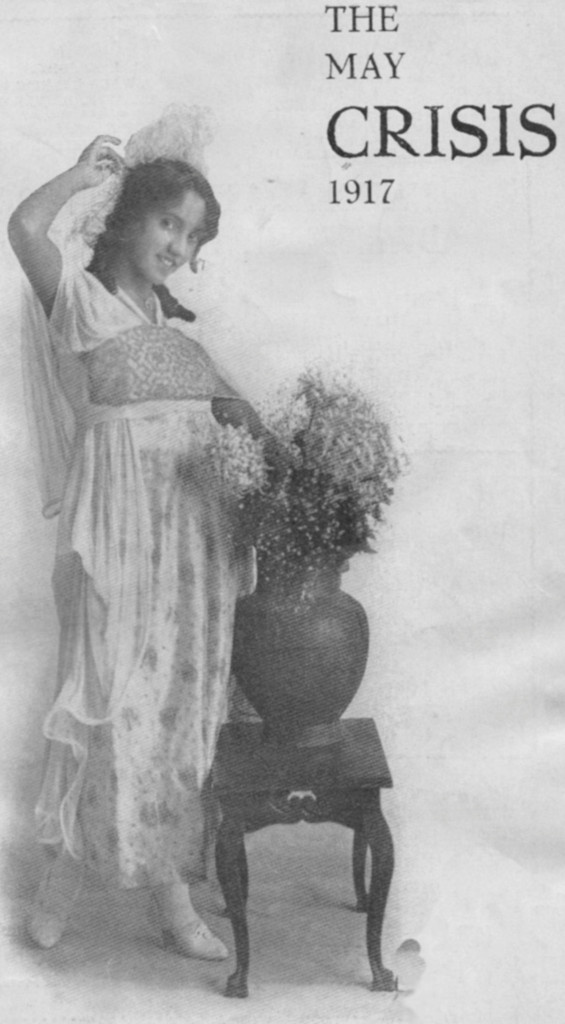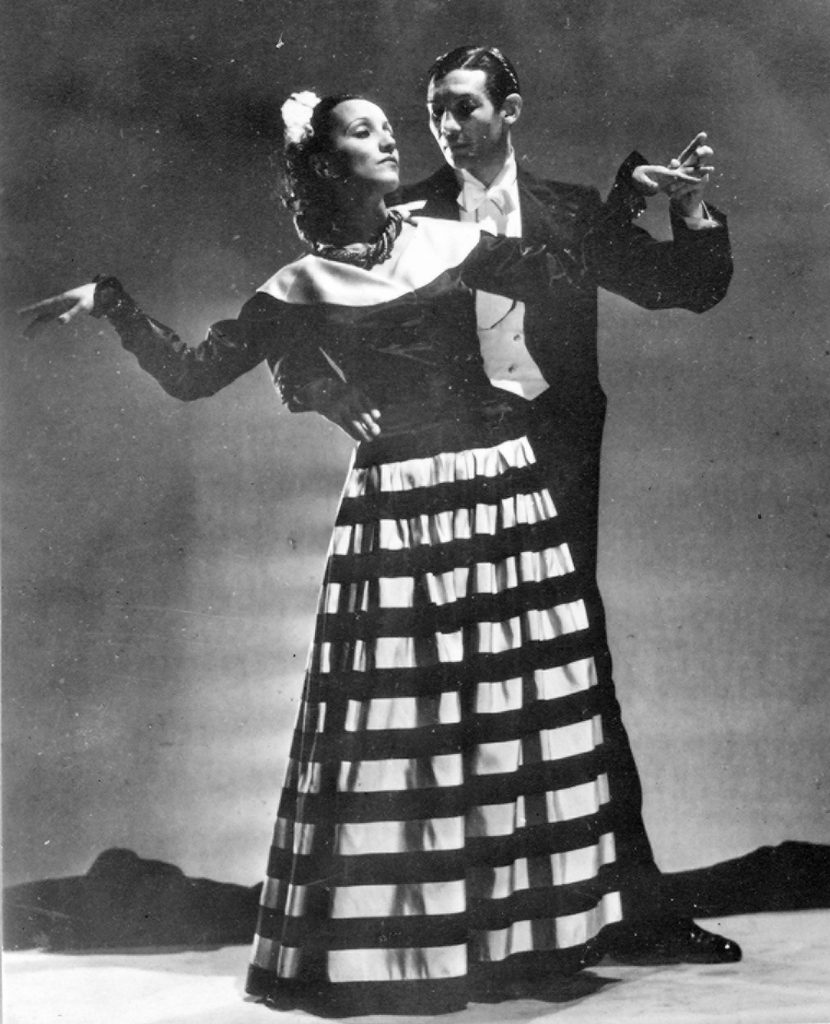
Langston Hughes was a cousin; Booker T. Washington was a friend; Bill “Bojangles” Robinson taught her tap dance; W. E .B. du Bois a likely first lover…
Contemporary ‘It girls’ have nothing on the free spirits of the 1920s like Anita Thompson Dickinson Reynolds, who danced the Charleston, turned cartwheels on the sidewalk, and drank gin blossoms till dawn.
 In early Hollywood, Anita attended Charlie Chaplin’s “anarchist” meetings, studied dance with Ruth St. Denis, played an Arab servant girl in “The Thief of Bagdad” with good friend Douglas Fairbanks and starred in one of the earliest black-produced films, “By Right of Birth,” in 1921, about a black girl whose adoptive white parents conceal her racial origins. (One of her climactic lines in the film, recounted in the memoir with a literary eye roll: “My god, I’m a Negro!”)
In early Hollywood, Anita attended Charlie Chaplin’s “anarchist” meetings, studied dance with Ruth St. Denis, played an Arab servant girl in “The Thief of Bagdad” with good friend Douglas Fairbanks and starred in one of the earliest black-produced films, “By Right of Birth,” in 1921, about a black girl whose adoptive white parents conceal her racial origins. (One of her climactic lines in the film, recounted in the memoir with a literary eye roll: “My god, I’m a Negro!”)
In 1923 she lived at 237 West 139th Street on Strivers’ Row in Harlem with the well known family of Harlem high society the Harry Austin family. Living in Harlem gave her the opportunity to meet showman Flournoy Miller who gave her a spot on the chorus line of Runnin’ Wild, one of the most successful black acts on Broadway of the 1920’s, now famous for setting off the Charleston craze o the 1920’s. All this while she was attending Columbia’s Teachers College to become an art educator and hanging out in the salons of Harlem.
She traveled easily between the mostly white bohemia of Greenwich Village, seemingly meeting everyone who was anyone. (When she felt like it, that is: She declined an invitation to F. Scott Fitzgerald’s house on the grounds that “the newly rich Irish and arriving Southamptoners” were “rather dull and unintelligent, I’d heard.”)
But few crashed the party with the verve, elegance, and wit of Anita Reynolds, whose impossibly seductive memoir, American Cocktail: A “Colored Girl” in the World, uncovered by a Cornell professor, captures the Jazz Age from her sexually candid, devil-may-care perspective. Reynolds was born into a politically engaged, mixed race family in Los Angeles–Langston Hughes was a cousin; Booker T. Washington, A’Lelia Walker was a friend; Bill “Bojangles” Robinson taught her tap dance; W. E .B. du Bois a likely (possible) first lover. “I’m afraid you have a little Bolshevik on your hands,” Du Bois once told Anita’s mother, who replied, “Oh, she’ll dance it out of her system eventually.”
She starred in some of the first films produced by blacks in Hollywood, where she hobnobbed with Harlem Renaissance elite, and then, absconding with her college tuition, sailed to Paris in 1928. Coining the term ‘American cocktail’ to describe her ‘red, white, and black’ ancestry, Reynolds made a splash amid the Left Bank art scene, attracting the likes of Matisse, who sketched her, and Man Ray, who became a friend and mentor.
 With a mordant lightness of touch, Reynolds retells her escapades, from modeling for Coco Chanel to a breakfast with Madame Petain–just before a mad dash to the last boat from Lisbon, panicked refugees and couture dresses in tow, as Nazi panzers closed in on Paris.
With a mordant lightness of touch, Reynolds retells her escapades, from modeling for Coco Chanel to a breakfast with Madame Petain–just before a mad dash to the last boat from Lisbon, panicked refugees and couture dresses in tow, as Nazi panzers closed in on Paris.
Photo credit: 1) Anita Reynolds wrote about being untethered by race. Credit Moorland-Spingarn Research Center, Howard University. 2) Anita Reynolds, at 16, on the cover of the N.A.A.C.P. magazine. Credit Moorland-Spingarn Research Center, Howard University. 3) Anita Reynolds modeling Chanel around 1938. Her memoir is being released this week. Credit Moorland-Spingarn Research Center, Howard University. 4) Anita Reynolds as an Arab servant girl in “The Thief of Bagdad,” a 1924 film. Credit Kino Lorber.
Become a Harlem Insider!
By submitting this form, you are consenting to receive marketing emails from: Harlem World Magazine, 2521 1/2 west 42nd street, Los Angeles, CA, 90008, https://www.harlemworldmagazine.com. You can revoke your consent to receive emails at any time by using the SafeUnsubscribe® link, found at the bottom of every email. Emails are serviced by Constant Contact

















